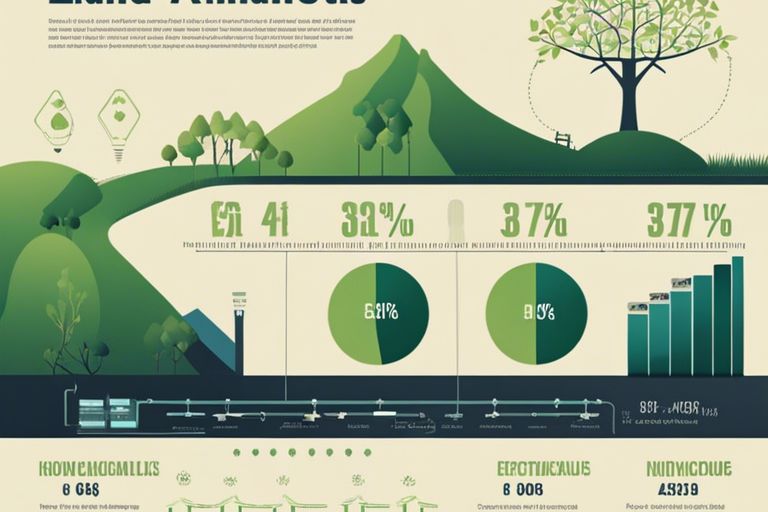Most successful land management strategies are built on a foundation of accurate and comprehensive land data analysis. Utilizing data-driven insights can significantly enhance decision-making processes, optimize resource allocation, and ultimately lead to more efficient and sustainable land management practices. In this blog post, we will explore into the importance of leveraging land data analysis to inform and improve land management strategies across various industries.
Understanding Land Data
Types of Land Data
Before implementing any land management strategy, it is imperative to understand the various types of land data that play a crucial role in decision-making. Types of land data include physical characteristics, land use, ownership, environmental conditions, and economic value. It is crucial to have a comprehensive understanding of these data types to make informed decisions and formulate effective land management plans.
| Physical Characteristics | Land Use |
| Ownership | Environmental Conditions |
| Economic Value |
Assume that a land manager has access to all these types of data, they will be able to analyze the land more comprehensively and develop sustainable strategies for its management.
Methods of Data Collection
Any effective land data analysis begins with the collection of accurate and reliable data. There are various methods of data collection used in land management, including remote sensing, Geographic Information Systems (GIS), surveys, field observations, and historical records. Each method offers unique insights into different aspects of the land, providing valuable information for decision-making.
Data collected through these methods helps land managers gain a deeper understanding of land characteristics, trends, and changes over time, allowing them to make informed decisions and implement effective land management strategies.

Technologies in Land Data Analysis
Remote Sensing and GIS
Little in land data analysis is as transformative as the integration of remote sensing and Geographic Information Systems (GIS). These technologies enable us to collect vast amounts of data from satellites, drones, and other sources, allowing for in-depth analysis of land cover, land use, and environmental changes over time.
Data Analytics and Machine Learning
For effective land management strategies, leveraging data analytics and machine learning is necessary. These technologies can process large volumes of land data, identify patterns, and predict future trends with remarkable accuracy. By harnessing the power of algorithms and automated processes, land managers can make informed decisions that lead to more sustainable land use practices.
Analysis of land data through data analytics and machine learning not only provides valuable insights but also enhances the efficiency and precision of land management strategies. By uncovering hidden patterns and relationships within complex datasets, stakeholders can better understand the dynamics of their land assets and make well-informed decisions that optimize productivity and minimize environmental impact.
Applications of Land Data Analysis
Urban Planning and Development
Planning for urban development requires a deep understanding of various land data factors such as population density, land use patterns, infrastructure availability, and environmental considerations. By utilizing land data analysis, urban planners can make informed decisions on where to allocate resources for housing, transportation, parks, and other imperative amenities. This data-driven approach helps in creating sustainable and efficient urban spaces that cater to the needs of the growing population while preserving the environment.
Agricultural Management and Sustainability
The use of land data analysis is paramount in agricultural management for enhancing productivity and ensuring sustainability. By analyzing soil composition, topography, climate patterns, and crop yields, farmers can optimize their land use practices, implement precision agriculture techniques, and make informed decisions on crop selection and irrigation. This data-driven approach not only improves agricultural efficiency but also helps in minimizing environmental impact and promoting long-term sustainability of farmlands.
Challenges and Solutions in Land Data Analysis
Data Accuracy and Accessibility
Challenges related to data accuracy and accessibility are commonplace in land data analysis. Inaccurate or incomplete data can lead to flawed analysis and ineffective land management strategies. Accessing relevant data can also be a challenge due to various stakeholders involved, differing data formats, and data sources scattered across different platforms.
Integrating Multidisciplinary Approaches
Challenges in integrating multidisciplinary approaches in land data analysis stem from the diverse nature of information needed for comprehensive analysis. This involves combining data from various fields such as geology, ecology, socioeconomics, and more. Coordinating experts from different disciplines to work together and aligning their methodologies and data formats can be a daunting task.
Understanding the importance of integrating multidisciplinary approaches is crucial for effective land data analysis. By leveraging insights from various fields, a more holistic understanding of land dynamics can be achieved. Collaborating with experts from different disciplines can lead to a richer analysis and more informed land management decisions.
To wrap up
Conclusively, land data analysis plays a crucial role in the formulation and implementation of effective land management strategies. By leveraging technological tools and data-driven insights, land managers can make informed decisions, improve resource allocation, and address challenges such as climate change and urbanization. Through continuous monitoring and analysis of land data, stakeholders can ensure sustainable land use practices and meet the evolving needs of communities and the environment. Therefore, incorporating land data analysis into land management strategies is necessary for maximizing the potential of land resources and achieving long-term sustainability goals.

